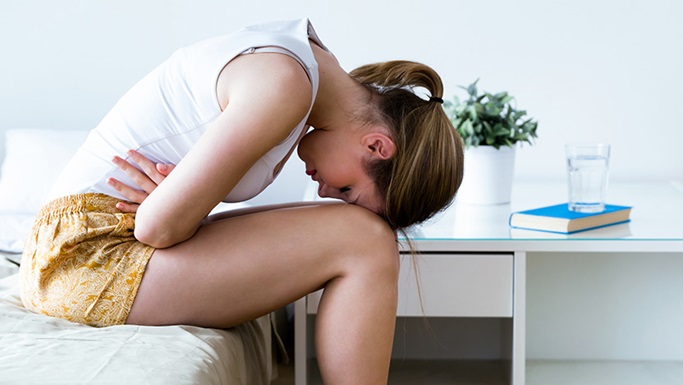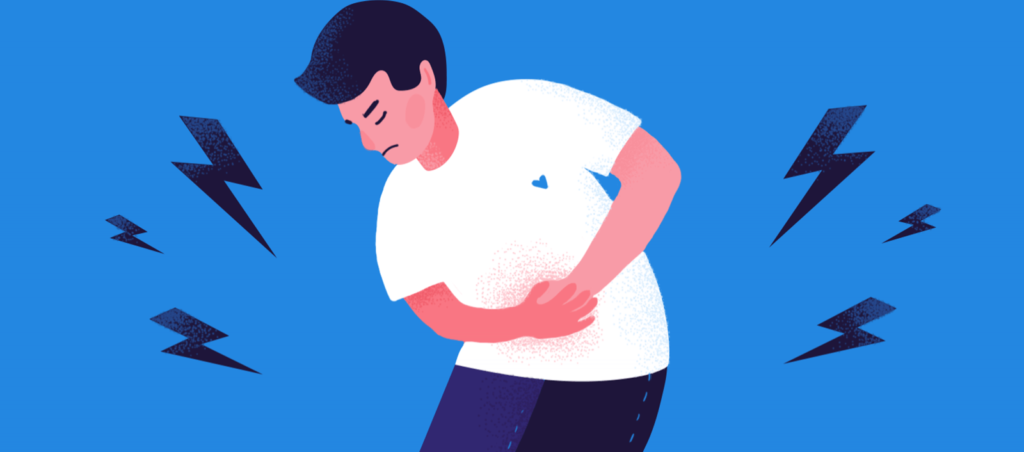Do you have a feeling of anxiety in your stomach? You’re not alone. Many people experience this type of anxiety, and it can be quite debilitating. In this blog post, we will discuss the symptoms of stomach anxiety, as well as how to treat it. We will also provide some helpful tips for preventing this type of anxiety from occurring in the first place. So if you’re struggling with stomach anxiety, read on for help.
Contents
What Is Stomach Anxiety?

Stomach anxiety is a type of performance anxiety. It is a common problem among athletes and public speakers who get nervous before an event. The condition can also be seen in people who have social anxiety disorder and other forms of anxiety disorders.
This condition is characterized by a feeling of butterflies in the stomach or an upset stomach. The person may also have trouble eating or sleeping. In some cases, the person may vomit or have diarrhea.
Stomach anxiety is different from other types of anxiety because it is usually accompanied by physical symptoms. These physical symptoms can make it difficult to function normally. For example, if you have stomach anxiety, you may not be able to eat before a big event.
The good news is that there are treatments available for stomach anxiety. If you think you may have this condition, talk to your doctor. They can help you find the right treatment for your specific situation.
Different Stomach Anxiety Symptoms

Many different stomach anxiety symptoms can manifest in individuals. It is important to be aware of the different stomach anxiety symptoms so that you can properly identify and treat the condition. Some of the different stomach anxiety symptoms include:
Abdominal Pain
Abdominal pain is one of the most common stomach anxiety symptoms. This pain can be caused by a variety of factors, including gas, bloating, constipation, and diarrhea. The pain may be sharp or dull and can range from mild to severe. Also, the pain may be localized to one area or may be felt throughout the abdomen.
Nausea
Another common symptom of stomach anxiety is nausea. This may be accompanied by vomiting, dizziness, and sweating. Nausea can be caused by a variety of factors, including indigestion, food poisoning, and motion sickness.
Loss of Appetite
Many people with stomach anxiety experience a loss of appetite. This may be due to nausea and vomiting that can accompany the condition. Additionally, some people may avoid eating because they are afraid of triggering their symptoms.
Weight Loss
weight loss is another common symptom of stomach anxiety. This weight loss can be due to the loss of appetite that accompanies the condition. Additionally, weight loss may occur if the individual is vomiting frequently or has diarrhea.
Anxiety
One of the most common symptoms of stomach anxiety is anxiety. This anxiety may be caused by the fear of triggering symptoms, the fear of vomiting, or the fear of losing control. The anxiety may be accompanied by a racing heart, shortness of breath, and sweating.
Frequent Flatulence
An individual with stomach anxiety may experience frequent flatulence. This may be due to the increased production of gas that can occur when the individual is anxious. Additionally, flatulence may be caused by indigestion or constipation.
Twitching of Muscles
Somatosensory amplification is a condition that can cause the muscles to twitch. This condition is often associated with anxiety disorders, including stomach anxiety. The twitching of the muscles may be accompanied by tingling, numbness, and pain.
Stomach Growling
This is an involuntary process that happens when the stomach and intestines contract to move food along. It’s usually louder when you’re hungry because the stomach is empty and makes more noise as it tries to digest food. Growling can also happen after you eat if there’s still a lot of gas and fluid in your stomach.
Bloating
This is often caused by excess gas in the stomach, which can make the abdomen feel full or tight. This can be uncomfortable, but it’s usually not painful. Belching or burping may help relieve some of the pressure from bloating. Sometimes, bloating can be caused by constipation, so you may also feel like you need to poop even though you don’t.
Heartburn
Heartburn occurs when stomach acid flows back up into the esophagus, the tube that carries food from your mouth to your stomach. This can cause a burning sensation in the chest or throat, as well as a sour taste in the mouth. You may also feel like you have food stuck in your throat. Heartburn is more common after eating a large meal or lying down.
Diarrhea
This is when you have loose, watery stools more than three times in one day. Diarrhea can also lead to dehydration if you’re not drinking enough fluids to replace what’s being lost. It can be caused by a viral infection, food poisoning, or stress.
Knots in the Stomach
A stomach knot is usually just a buildup of gas or indigestion. It’s not usually painful, but it can be uncomfortable. If you’re feeling bloated or gassy, you may also have stomach cramps. This is when the muscles in your stomach contract and cause pain.
“Butterflies” in the Stomach
Somatization is when physical symptoms are caused by psychological factors, such as anxiety. This can cause a feeling of fluttering or “butterflies” in the stomach. It’s usually not painful, but it can be uncomfortable.
Stomach pain
This is usually a sign of indigestion, gas, or bloating. However, it can also be a more serious condition like irritable bowel syndrome (IBS). If you’re experiencing stomach pain that’s severe or lasts for more than a few days, you should see a doctor.
What To Do If You Have Stomach Anxiety Symptoms?

Haas recommends “getting rid of as many (stomach anxiety symptoms) as possible.” This means identifying your stomach anxiety triggers and avoiding them. If you can’t avoid a trigger, try to minimize your exposure to it. You should also keep a journal of your stomach anxiety symptoms to help you identify patterns and triggers.
There are also some things you can do to relax your stomach muscles and reduce the frequency of stomach anxiety attacks. Haas recommends trying relaxation techniques such as deep breathing, progressive muscle relaxation, and guided imagery. You can also try over-the-counter medications like antacids or acid blockers. If these methods don’t work, talk to your doctor about prescription options.
Sometimes, stomach anxiety is caused by an underlying condition, such as GERD or IBS. If this is the case, treating the underlying condition can help reduce stomach anxiety symptoms. If you think your stomach anxiety may be caused by an underlying condition, talk to your doctor.
While stomach anxiety can be painful and frustrating, there are things you can do to manage your symptoms. By identifying your triggers and learning relaxation techniques, you can take control of your stomach anxiety and live a more comfortable life.
Conclusion
Stomach anxiety is a real and serious condition that can have a major impact on your life. Ia f you think you may be suffering from stomach anxiety, it’s important to see a doctor or mental health professional to get a diagnosis and treatment. There are many effective treatments for stomach anxiety, so there’s no need to suffer in silence. With proper treatment, you can regain control of your life and start enjoying life again. Thanks for reading!
If you found this article helpful, please share it with others who may be struggling with stomach anxiety. And if you have any questions or comments, please feel free to contact us for more information. Thanks for reading.
Hope this article was of help to you! If you are suffering from anxiety attacks, you may seek help from Therapy Mantra. We have a team of highly trained and experienced therapists who can provide you with the tools and skills necessary for overcoming anxiety attacks. Contact us today to schedule an online therapy or download our free Android or iOS app for more information.


